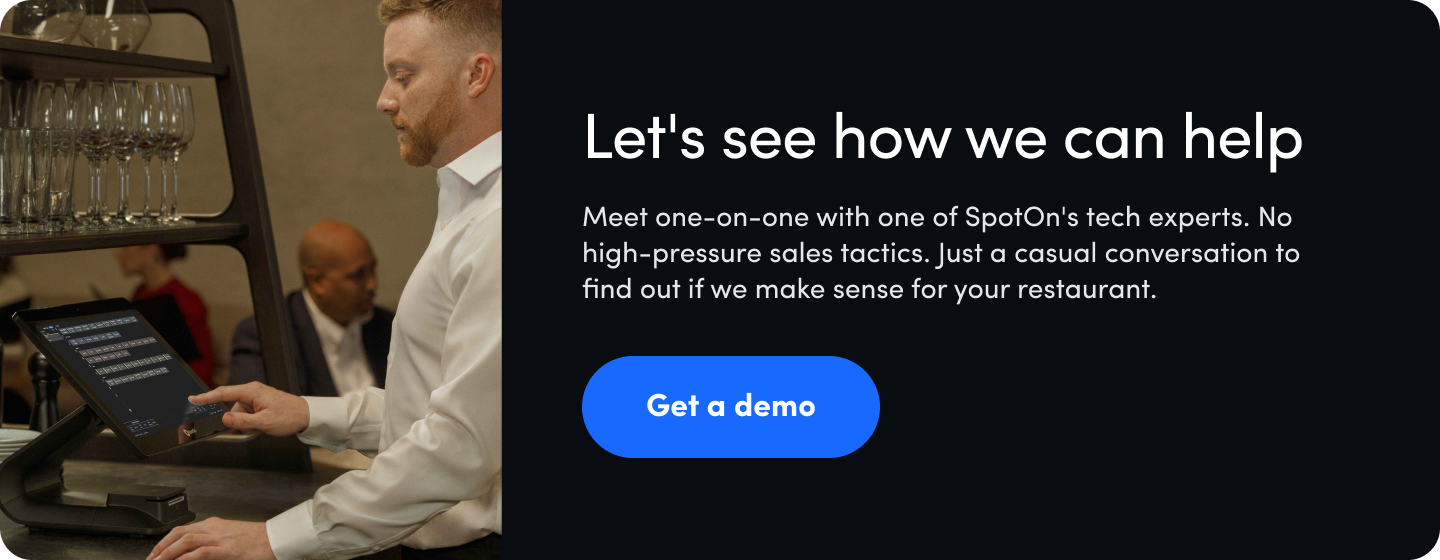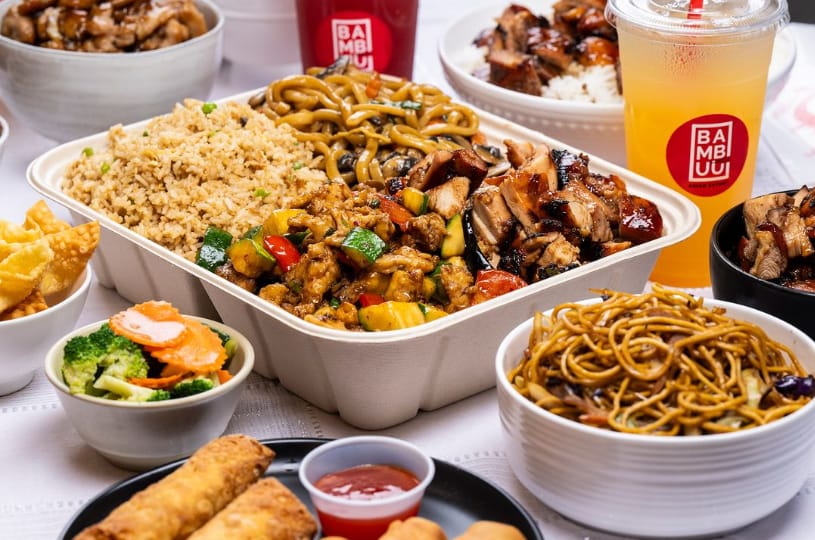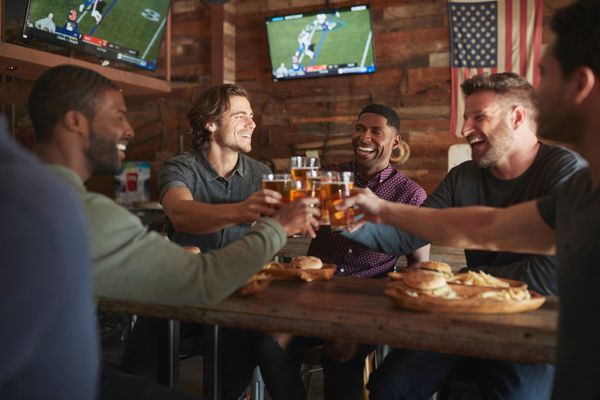Gigi Cohen is the Director of Marketing for MDP Restaurant Group. MDP Restaurant Group operates concepts nationwide, including their newest concept: Bambuu Asian Eatery. In her role, Cohen sets the restaurant marketing strategy, develops social media ads, and tracks the success of their online advertising and email marketing.
For months, Cohen has been using Marketing Assist, an automated marketing tool that creates customized email, Facebook, and Google marketing campaigns. Marketing Assist integrates with SpotOn Restaurant POS, so users can track deal redemptions and measure ad campaign success. With automated restaurant marketing software, Cohen saves 3 – 4 hours every week creating marketing campaigns. Bambuu Asian Eatery has even seen over $2,500 in deal redemptions from their advertising efforts.
1. Know your target audience
Bambuu Asian Eatery is our first free-standing store. The rest of our restaurants are in food courts, requiring different marketing strategies. For Bambuu, we're in growth mode. I'm asking myself: How can I move the needle? What will work in this specific market?
Our best-performing social media platform is Facebook. That's primarily due to the age range of both our returning and potential customers. While we get some traffic from regional visitors, we're mainly focused on cultivating a community of loyal customers.
Facebook often encourages me to expand our posts' reach so new customers can find our restaurant online. While that kind of paid advertising will surely help get more eyes on our social media posts, it doesn't necessarily help us reach our target audience. Facebook location ads are more effective at attracting customers who might not have heard of your restaurant but have a significant interest in the area.
If you post to Facebook using the SpotOn integration, the message must be posted to Facebook first. Make sure the post looks correct in its Facebook environment before "boosting" it to a broader audience.
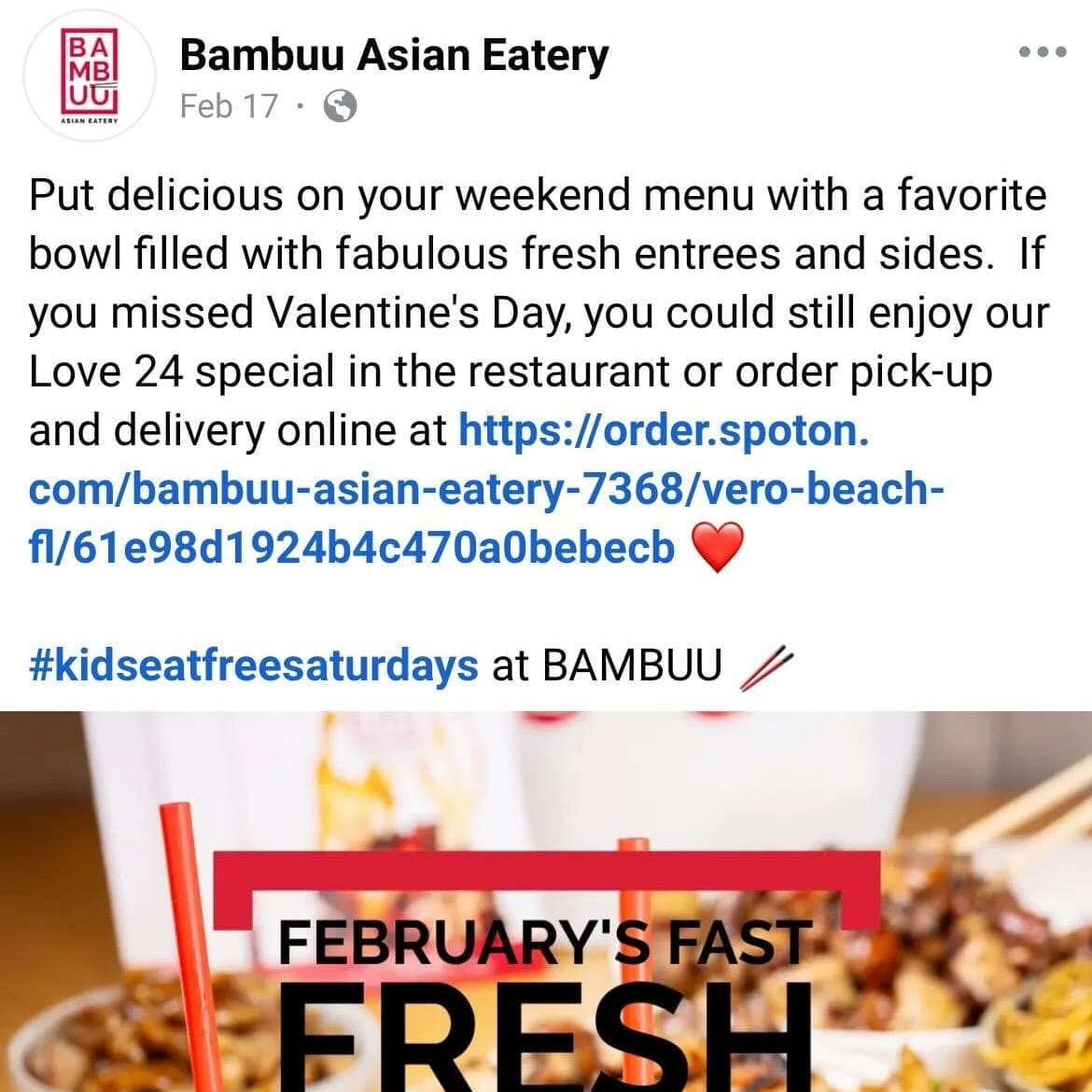
2. Show up at local events
One of the most successful (and rewarding) restaurant marketing strategies is giving back to your community. Think of it as organic advertising, influencer marketing, or paid advertising—however you categorize it, it's much more than a free meal.
We frequently drop off food at the local police department. Maybe they're not food bloggers, but it's a great way to get our brand out there. If they post on their social media, that's user-generated content. Restaurant advertising is more than social media contests and digital billboards. Sometimes, it's free food delivery for people who appreciate it.
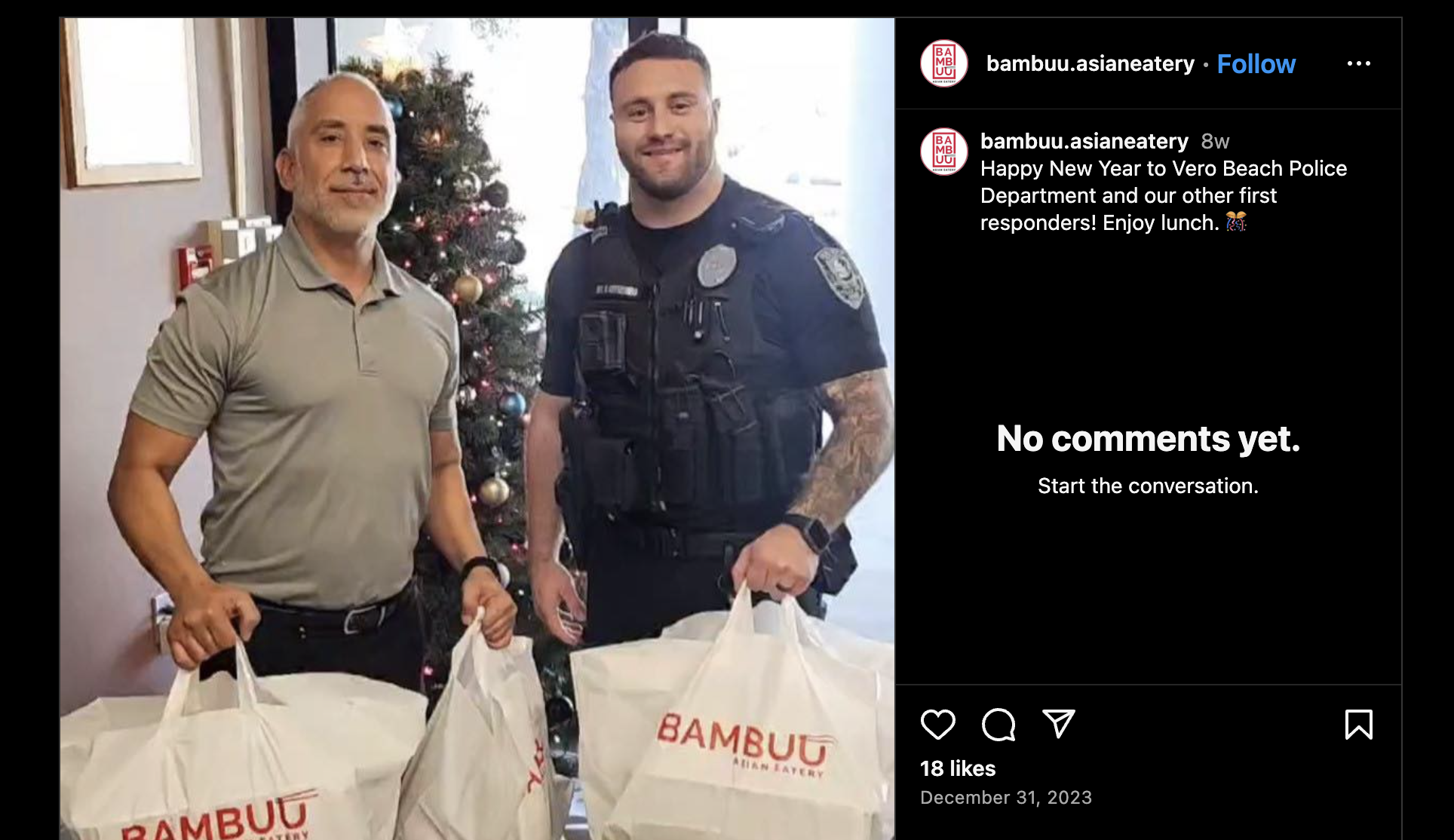
3. Try a mix of media and see what sticks
TV commercials. Radio ads. Direct Mail. Features in the local newspaper or blogger site. There's a buffet of options for restaurant advertising, but that doesn't mean you need to dominate all of them.
Alongside social media marketing, I've found Google works nicely. Make sure you're noticeable on Google Maps and search. It's critical for discovering new customers and staying competitive with local businesses. I invest a lot of my time in search engine optimization. It might not be as glamorous as TV commercials and digital advertising, but your restaurant must be on search engine results pages.
It's used for direct mail, TikTok, and Instagram. Different restaurant marketing channels resonate with other markets. If you set realistic goals and measure where you can, you'll discover whether email marketing, digital marketing, or rewarding your most loyal customers leads to the most success for your restaurant.
4. Establish trust
At our restaurants, we care mightily about service—almost as much as food. It's more than lip service for us. This informs our restaurant marketing plan. When it comes to our digital and social media marketing, I'm communicating trust with our guests. We don't want to oversell what we're offering. We're selling good, fresh food. We really respect every dollar a customer chooses to spend with us. The restaurant industry is vast. Guests are bombarded by restaurant ads showcasing everything from meticulously crafted healthy food to generous fast food loyalty programs.
Establishing trust with your guests via social media and email marketing is critical for reputation management. Negative online reviews can hurt your business, plus they're a lost opportunity. When your guests trust you, they can come to you with feedback instead of telling their friends or posting on your business page.
5. Look at the bigger picture
Rather than narrowing in on one metric to determine the success of our restaurant ads, I take a holistic approach. Revenue is one aspect. Are sales growing? Are upsells increasing? How many new customers are we seeing versus repeat customers?
Equally important is the feedback we hear from existing customers on social media. Our guests are active on social media. They'll say, "The front-of-house staff was so welcoming," or "This staff member walked me through the restaurant's menu." Bambuu Asian Eatery feels like a local restaurant for the community. Identifying this part of the restaurant's brand identity has informed our efforts. But it's more than just an advertising tactic. It's authentic.
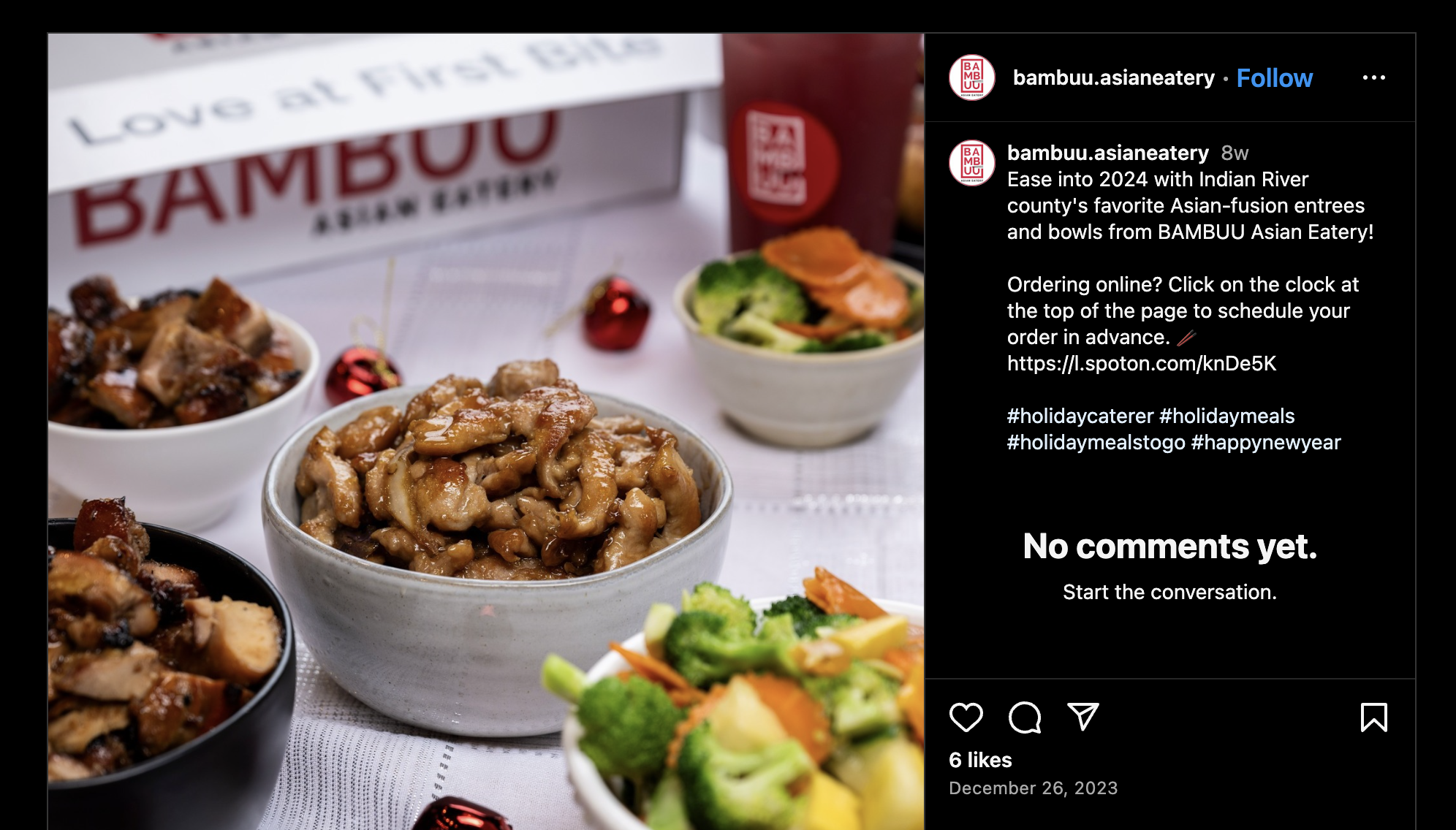
6. Your advertising strategy doesn't need to be perfect
Your food? It has to be perfect. Your communication strategy? Not so much. Some restaurant owners are very particular about food photography and think the food has to look absolutely beautiful. We work towards highly attractive, authentic pictures and good-looking food that are always appreciated on social media. Whether you're taking photos for your online menu, paid ads, or social media platforms, use photos that make your food look appetizing to potential hungry customers. Whatever you do, stay away from stock photos.
You don't have to be a major brand to have a marketing relationship with your guests. Many restaurants get nervous that restaurant ads won't be in their marketing budget or that they'll have to jump to a third-party agency to help them because they don't know where to begin when it comes to paid advertising. The resulting restaurant ads can be formulaic, especially when the budget is slim. In my opinion, you're better off being who you are. The best ads have a personality that is authentic to the restaurant experience—they stand out with a unique selling proposition.
7. Potential customers aren't just looking for deals
A lot of our online advertising takes place over email. As you might expect, the click-through rate for emails with rewards or deals is higher, but the open rates are relatively similar for both emails. I am careful about stat chasing. At the end of the day, I'm looking at our sales. Marketing is our tool for engaging customers and reminding them we're ready to serve them. As you brainstorm restaurant marketing ideas, identify your goals. Are you trying to push new menu items? Promote online ordering? Spread awareness about upcoming events? This doesn't just help you come up with a restaurant advertising strategy. It helps you measure effectiveness and create content that guests want to see.
The most important thing in restaurant marketing is for your guests to remember you're there. The restaurant business landscape is vast, and you must constantly remind guests that you exist. Stay top of mind by sharing photos and reviews of new menu items and highlighting the benefits of direct online ordering. If you want your restaurant ads to drive sales, add a deal for a free appetizer or percentage off their meal.
Restaurant marketing that moves the needle
The restaurant industry will always be competitive. No matter how buttoned up your restaurant marketing plan is, constant evolution is required to keep up with new media trends and changes in your restaurant(s). Creating clear goals will help you develop restaurant advertising ideas that build loyalty, grow your audience, and, most importantly, boost sales. The project will be more sustainable if you can save yourself a few hours a week. What's the best restaurant ad that no amount of paid advertising can beat? A fantastic guest experience.
